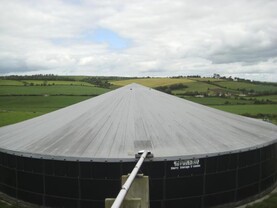With all the focus on Brexit, you’d be forgiven for forgetting the Common Agricultural Policy is undergoing its latest makeover for signing off in 12 months or so. Add in the European elections and a change of the guard at the European Commission, and this important policy and source of income for tens of thousands of Irish farmers is not getting the priority coverage it deserves.
There’s been a very engaging public consultation process and now it enters the crucial parliament phase where it’ll be kicked around by all the different coloured political ideologies, many with no time for farmers’ rights. This is Phil Hogan’s paper and he will be hoping that he’s still in charge of EU farm policy when it is eventually rolled out in the lifetime of the next Commission.
It contrasts greatly with the last reform under Romanian Commissioner Dacian Ciolos. His initial “flat-rate” proposal caused consternation across Europe and was eventually smothered by the more influential elements of the big farm lobby. But it began a worthwhile conversation about how this multi-billion euro annual package is distributed among Europe’s food producers.
This reform will definitely see an even deeper input from the parliamentary and council discussions.
It must be said that even though they may differ in how it should be distributed, all Irish MEPs representing farming constituencies are well clued-in regarding the important role which the CAP plays in rural Ireland
There was a time when the vast majority of European subsidies were sucked up by agriculture but that has dwindled to just above a third of total EU spending since the heady days of Ray McSharry’s Commissionership. And it’s shrinking all the time.
Since the last policy revision in 2013, Brexit, Crimea, migration and security have ballooned in terms of importance to Europe. Whatever about the logistical problems those issues pose, they also demand a financial solution which is putting an even greater squeeze on the CAP purse.
It must be said that even though they may differ in how it should be distributed, all Irish MEPs representing farming constituencies are well clued-in regarding the important role which the CAP plays in rural Ireland.
Indeed growing numbers of consumers here and across Europe also realise that this budget is in our interests in terms of guaranteeing affordable, traceable and safe food supply. But we should not underestimate those with a say that employ a different, more sceptical viewpoint.
EU farm supports
What is inevitable is that EU farm supports will be diminished into the future. An analysis of farmgate price over any given period of time shows volatility so farmers are being battered financially from all sides. Any farmer over the age of 50 will be able to produce dockets to show how they were getting paid as much if not more for their produce 30 years ago.
Since the last policy revision in 2013, Brexit, Crimea, migration and security have ballooned in terms of importance to Europe
Of course in the intervening years, the single farm payment has managed to offset the incremental losses. But now even that is under pressure. So what is the solution?
Are the EU and national governments doing enough to encourage diversification? Are farmers ready and equipped to meet the immediate climate change demands which will no longer be voluntary in Pillar II? While Brexit is taking up all of our time and energy, these are vital and pressing questions which need to be addressed fast if we are not to see a real crumbling of the European model of family farming which the CAP is ironically supposed to protect.
Two decent young people told me that they didn’t receive ashes last week for fear of ridicule among their peers in work. How sad is that? Our country very recently voted clearly and rightly for tolerance and freedom of choice in two important referendums. So where’s the tolerance when it comes to Ash Wednesday? Consistency and inclusion, how are you!






 This is a subscriber-only article
This is a subscriber-only article









SHARING OPTIONS: